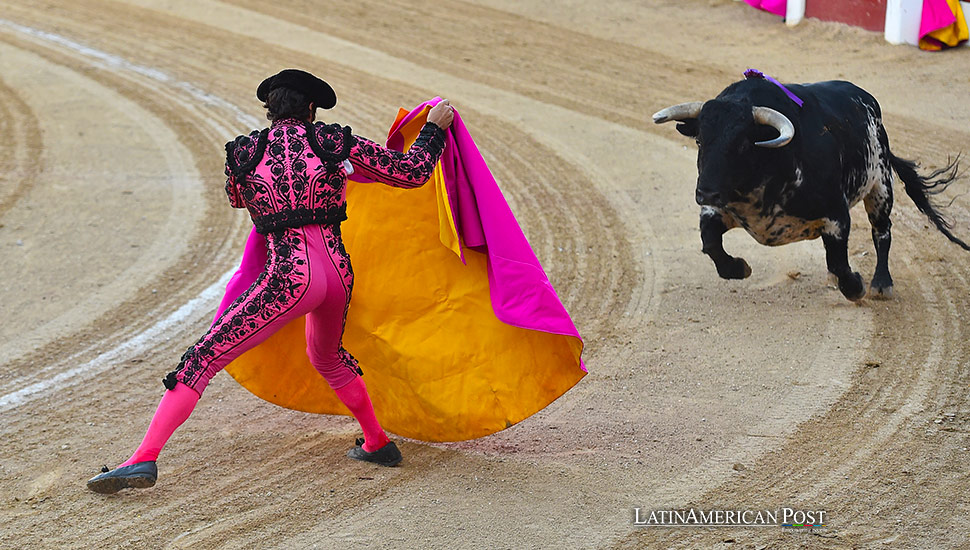The Inevitable Decline of Bullfighting in Latin America

Bullfighting, once woven into the cultural fabric of Latin America, faces inevitable extinction. Yet, while it declines naturally, significant subsidies persist, unspoken and substantial, underscoring a complex cultural paradox.
Bullfighting, or tauromaquia, has long been a subject of heated debate across Spain and Latin America. Its proponents see it as an art form deeply embedded in cultural traditions, while its detractors condemn it as a brutal relic of the past. Victor Manuel, a seasoned Spanish musician, recently commented on the future of tauromaquia, suggesting that it will “extinguish itself without anyone pushing it” despite the substantial subsidies it still enjoys. This perspective invites a broader reflection on cultural evolution and the role of modern societies in shaping their traditions.
A Cultural Institution Under Scrutiny
In many parts of Latin America, as in Spain, bullfighting has been more than a sport or a form of entertainment; it has been a cultural institution. From Mexico to Colombia and Peru, arenas have historically filled with crowds drawn by the pageantry and thrill of the corrida. However, the tide is turning. The spectacle of bullfighting is increasingly viewed through a lens of contemporary ethics that questions the morality of such traditions.
Victor Manuel’s remarks come at a pivotal moment. Spain’s cultural ministry’s recent cancellation of the Spanish National Bullfighting Award reflects a broader societal shift that is also palpable across Latin America. Countries are slowly moving away from tauromaquia as public sentiment grows in favor of animal rights and against the glorification of animal cruelty.
Yet, despite its gradual decline in popularity, bullfighting continues to receive significant financial support. This paradox highlights a broader issue prevalent in Spain and Latin America—the persistence of subsidies for practices that are no longer in step with mainstream societal values. Manuel criticizes this phenomenon, pointing out the hypocrisy in how cultural subsidies are publicly debated, contrasting the quiet financial backing bullfighting receives against the scrutiny of other cultural subsidies.
The decline of tauromaquia in Latin America can be observed in several areas. In Mexico, for instance, once a stronghold of bullfighting, cities like Mexico City have seen significant protests and declining attendance at bullfights. In Colombia, cities such as Bogotá have also witnessed a downturn in bullfighting events, with local governments facing pressure to convert bullrings into venues for more widely acceptable forms of entertainment.
A Crossroads for Ethics and Tradition
However, transitioning from bullfighting is more than just declining popularity or increasing public disdain. It’s about a more profound, fundamental shift in how societies understand and uphold ethics and animal rights. With its rich biodiversity and increasing environmental awareness, Latin America is at a crossroads. The region’s growing emphasis on conservation and sustainable practices in other areas might extend to reevaluating culturally sanctioned animal cruelty.
The future of tauromaquia and similar traditions depends significantly on education and public awareness. As societies across Latin America become more globalized and exposed to international norms of animal welfare, traditional practices involving animal cruelty are likely to be further questioned and ultimately abandoned. This process is already underway, as seen in the changing attitudes towards bullfighting among the younger generations, who are generally less enthusiastic about preserving such traditions than their elders.
Proactive Measures for Ethical Progress
However, waiting for bullfighting to “extinguish itself” may be insufficient. Active measures might be necessary to accelerate the decline of practices that no longer reflect contemporary ethical standards. This could involve cutting subsidies, implementing stricter regulations, or outright bans. Such actions, however, must be taken with consideration of the cultural contexts within which these traditions operate, ensuring that transitions away from controversial practices are sensitive to the histories and identities of the people involved.
Also read: Tania Elías and Elena Oetling Tackle Mexico’s Century-Old Nautical Culture Gap
While Victor Manuel optimistically predicts the natural demise of bullfighting, there is a role for more proactive approaches in ensuring that this decline is both swift and humane. With its complex tapestry of cultural traditions and modern influences, Latin America faces the challenge of navigating its cultural evolution without erasing its history. As bullfighting slowly retreats into the annals of history, it will likely become a symbol of a bygone era—when cultural fascination with tradition momentarily overshadowed the ethical imperatives of modernity. The inevitable disappearance of tauromaquia from Latin American arenas will mark not just the end of a tradition but also a step forward in the ethical maturation of society.




